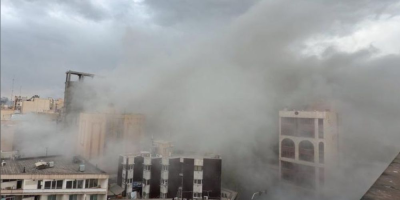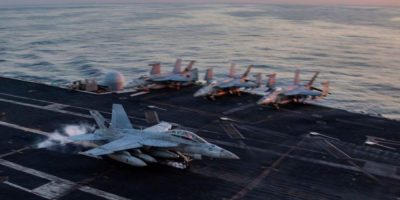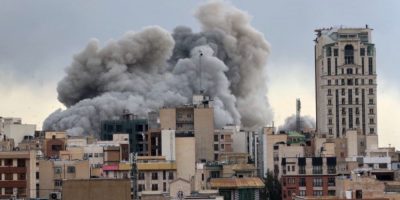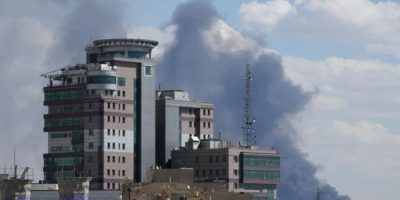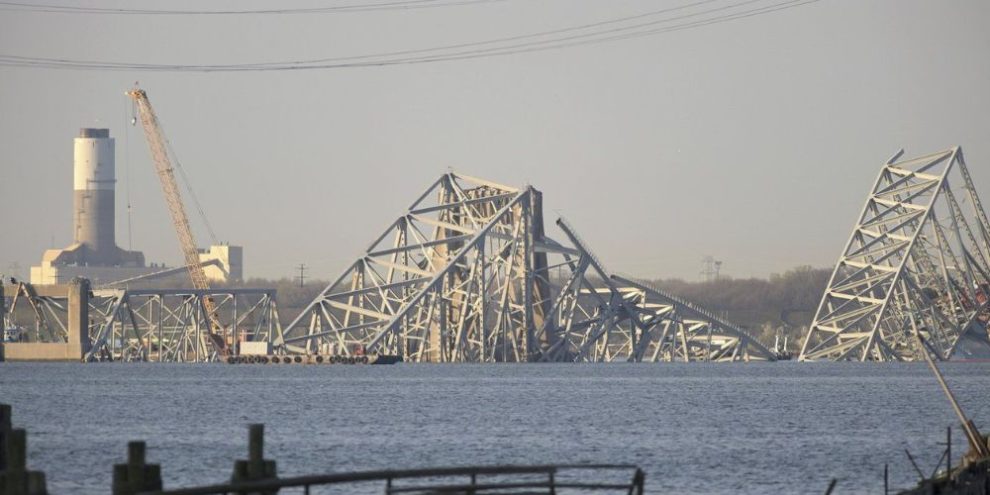
Lea Skene And Brian Witte - The Associated Press
A crane appeared at the site of a collapsed highway bridge in Baltimore as crews prepared Friday to begin clearing wreckage that has stymied the search for four missing workers and blocked ships from entering or leaving the city's vital port.
A crane that can lift 1,000 tons — described as the largest on the Eastern Seaboard — had been expected to arrive late Thursday, and a second that can lift 400 tons should arrive Saturday, officials said earlier. They will be used to clear the channel of the twisted metal and concrete remnants of the Francis Scott Key Bridge, and the cargo ship that hit it this week.
Divers had already recovered the bodies of two men from a pickup truck in the Patapsco River, but the nature and placement of the debris has complicated efforts to find the four workers still missing and presumed dead.
“The divers can put their hands on that faceplate, and they can’t even see their hands,” said Donald Gibbons, an instructor with Eastern Atlantic States Carpenters Technical Centers. “So we say zero visibility. It's very similar to locking yourself in a dark closet on a dark night and really not being able to see anything.”
Divers must cut up debris to remove it, Gibbons said, likening it to playing pick-up sticks, since items at the bottom can’t move without disturbing the whole pile.
“So we use underwater burning and underwater cutting solutions to help make those pieces smaller so that when we do cut them away, we’re not affecting the entire pile,” said Gibbons, who is not involved in the Baltimore effort.
Baltimoreans made morning stops at vantage points to watch for the cranes. Ronald Hawkins, who is 71 and could see the bridge from his home, recalled watching its construction in 1972. It opened in 1977.
Now, with sadness, he stopped by an overlook, seeking closure.
“I’m going to come up here every day, because I want to see the bridge coming up out of the water,” Hawkins said. “It’s a hurtin’ thing.”
"The best minds in the world” are working on the removal plans, Gov. Wes Moore said. The U.S. Army Corps of Engineers' Baltimore district told the governor that it and the Navy were quickly mobilizing resources from around the country.
“This is not just about Maryland,” said Moore, a Democrat. “This is about the nation’s economy. The port handles more cars and more farm equipment than any other port in America.”
He thanked President Joe Biden's administration for approving $60 million in immediate aid. Biden has said the federal government will pay the full cost of rebuilding the bridge.
Ship traffic at the Port of Baltimore remains suspended, but the Maryland Port Administration said in a statement Friday that trucks were still being processed at marine terminals.
“There is a lot of speculation as to when the channel will be reopened,” the agency said. “The fact of the matter is we do not know.”
Federal and state officials have said the collision and collapse early Tuesday appeared to be an accident that came after the ship lost power. Investigators are still trying to determine why.
The victims, who were part of a construction crew fixing potholes on the bridge, were from Mexico, Guatemala, Honduras and El Salvador, officials said. At least eight people initially went into the water when the ship struck the bridge column, and two of them were rescued, officials said.
The crash caused the bridge to break and fall into the water within seconds. Authorities had just enough time to stop vehicle traffic but were unable to alert the construction crew.
During the Baltimore Orioles’ opening day game Thursday, Sgt. Paul Pastorek, Cpl. Jeremy Herbert and Officer Garry Kirts, of the Maryland Transportation Authority, were honoured for their actions in halting bridge traffic and preventing further loss of life.
The three said in a statement that they were “proud to carry out our duties as officers of this state to save the lives that we could.”
The cargo ship Dali, which is managed by Synergy Marine Group, had been headed from Baltimore to Sri Lanka. It is owned by Grace Ocean Private Ltd. and was chartered by Danish shipping giant Maersk.
The loss of a road that carried 30,000 vehicles a day and the port disruption will affect not only thousands of dockworkers and commuters but also U.S. consumers, who are likely to feel the impact of shipping delays.
Scott Cowan, president of the International Longshoremen’s Association Local 333, said the union was scrambling to help its roughly 2,400 members whose jobs are at risk of drying up.
“If there’s no ships, there’s no work,” he said. “We’re doing everything we can.”
The huge vessel was carrying nearly 4,700 shipping containers, 56 of them with hazardous materials inside. Fourteen were destroyed, officials said. Industrial hygienists who evaluated the contents identified them as perfumes and soaps, the Key Bridge Joint Information Center said, and there was “no immediate threat to the environment.”
Containers are hanging dangerously off the side of the ship, Coast Guard Rear Adm. Shannon Gilreath said. “We’re trying to keep our first responders … as safe as possible.”
banner image: The Associated Press
